Logistics first: Justin and I were in the office all week; Dan spent half of it in Tallinn presenting at Creative Entrepreneurship for a Competitive Economy; and Marco was around until today, when he left for Tapiei to give a pair of talks at the IDA World Congress. This upcoming week Justin will be at the Design Management Institute event in New York and I will be at CMD in Buenos Aires to give a presentation there. We all have some copies of the book in our luggage, so say hi if you want one.
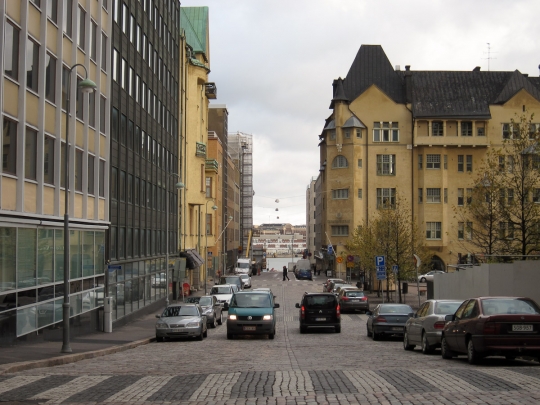
Fall in Helsinki's Kaartintori
Back at home, we enjoyed hosting Norway's Agency for Public Management and eGovernment (Difi) who came to visit on Thursday. Together with Sitra colleagues Sari, Ossi, and Marja we had a good conversation about the challenge of balancing the need to change public sector culture with the realities of having to do so in a non-disruptive way. This conversation echoed some of the things we discussed in our meeting with the UK Cabinet office mentioned here, as well as the general tone of MindLab's How Public Design? seminar in September.
Budgeting exercises continue, as does the ongoing process of shaping a portfolio of projects for 2012. More about this when we have something stable to share.
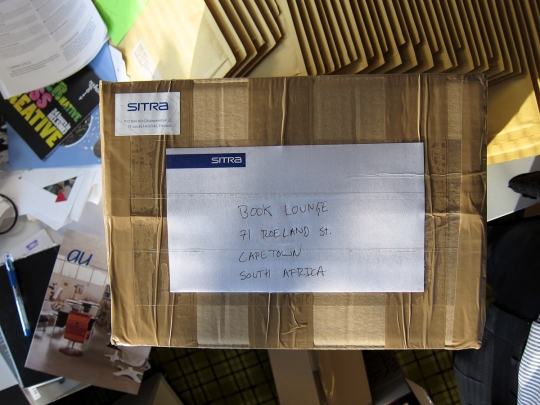
I had a fight with the label printer and it won
We're happy to announce that we've added two more bookshops to our fledgling distribution network for the book. Booklounge in Cape Town, South Africa and the SFMOMA Museum in San Francisco, USA will shortly have copies on sale.
Meanwhile, Marco has been steadfastly making his way through out mailing list, sending out copies to some of our stakeholders. His signature-singining fingers are getting a good workout.
Last week Dan entertained us with a quirky video from Finland's history, this week we go to Canada where they've created a creepy origin myth out of Marshall McLuhan's famous line "the medium is the message."
And then, perhaps, to New York, where the Occupy Wall Street protests have become a focal point for contemplating contemporary democracy. Lots of good writing on this, but I particularly enjoyed Michael Kimmelman's analysis in the New York Times:
It so happens that near the start of the protest, when the police banned megaphones at Zuccotti Park, they obliged demonstrators to come up with an alternative. “Mic checks” became the consensus method of circulating announcements, spread through the crowd by people repeating, phrase by phrase, what a speaker had said to others around them, compelling everyone, as it were, to speak in one voice. It’s like the old game of telephone, and it is painstakingly slow.
“But so is democracy,” as Jay Gaussoin, a 46-year-old unemployed actor and carpenter, put it to me. “We’re so distracted these days, people have forgotten how to focus. But the ‘mic check’ demands not just that we listen to other people’s opinions but that we really hear what they’re saying because we have to repeat their words exactly.
“It requires an architecture of consciousness,” was Mr. Gaussoin’s apt phrase.
Recently I happened to spot a micro-protest in a different medium in the subway tubes of Helsinki. Someone has posted EI KIITOS ("no thanks") stickers on most of the advertisements. I like that in both examples there's a politeness to the protest, even if a bit facetious. OWS is by far the more interesting of the two because of the infrastructure that the community has had to build now.
While they are definitely saying no to something, they protestors are also obliged to prototype a constructive example of how to organize human society. And not just the mic checks described above, but an entire miniture society including its own food service, sanitation department, library, and more.
Like any society, that one that has bootstrapped itself in Zuccotti Park has its own issues. Chris Cobb describes in Domus the group's creation of special women-only sleeping areas, for instance, which seems to imply that it's no oasis.
Lately I've been reading a lot of materials from open source movements and feeling as though we're living through a moment similar to the birth of the hippies in the 1960s, and the specific of the OWS story underline this thought. It also strikes me as a particularly American form of protest: complain, sure, but mostly just build the thing you want somewhere else. When you're condemming the global financial system, however, I'm not sure there is a somewhere else. And that's the problem.
Regardless of how the occupation plays out, I hope that one of the more lasting outcomes is an enhanced recognition of the need to develop a new culture of decision making. There are issues when the decisions of 1% outweigh the other 99, as there are when one form of value, such as finacial gain, dominate all others, like environmental and social returns.
A new culture is already emerging as public outrage, social media, and generally high levels of complexity begin to intersect. The real question is whether our formal democratic forums—our parliaments—will be able to handle it in a constructive way. Or if they end up in fisticuffs.
Note: We've had a bit of a technical problem with this post so it disappeared for a better part of Sunday. Sorry about that!
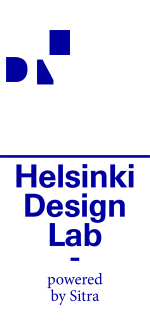


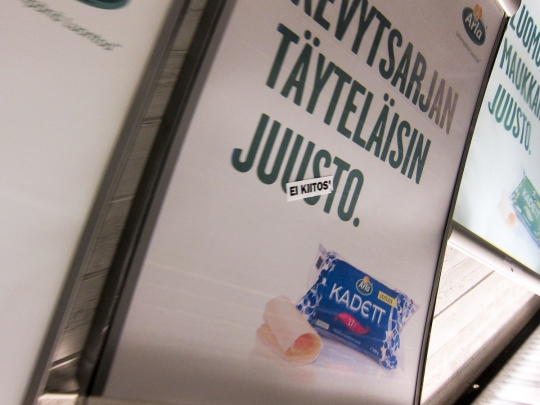
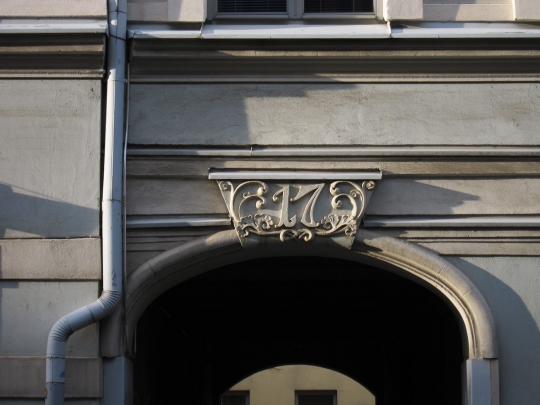

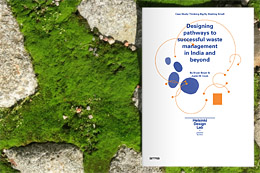
Thank You Sitra
All of us from Difi (Agency of Public Management and e-Government) are greatful that you managed to receive us early Thursday morning last week. Thank you, both Karoliina, that I met at Nordic Techpolitics in Oslo, you Brian, Ossi, Marja and Sari. Your presentations and our discussions were very inspiring and gave us a lot to think about concerning our working methods and plans for future projects.
The way Sitra dare to stir up the existing way of thinking, challenge the public sector management and find independent and new ways, exite us.
Hopefully we can keep in touch. And of course you are all most welcome to Oslo and Difi
Best regards
Sissel and the rest of Department for Public Administration and Organisation at Difi
posted by Sissel Kristin Hoel — 4 weeks ago